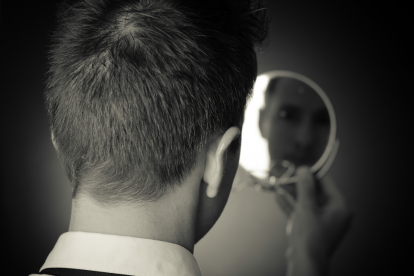
Bipolar Signs and Symptoms
Here at Bridges to Recovery, we want to help you fully understand the issues that may be ailing you, or the diagnosis you have received. It is the goal of our dedicated team of medical, psychiatric and clinical professionals to help you develop the skills and mechanisms you need to become the absolute best possible version of yourself. Our luxury treatment centers specialize in treating a wide range of complex mental health disorders, with one of our main concentrations being bipolar disorder. So, what is bipolar disorder? And what are the bipolar disorder symptoms you should be mindful of?
Getting to Know Bipolar Disorder
Seeing an example of how bipolar symptoms are exhibited in a real life situation is a key factor in understanding what you or a loved one may be living with. Let us take a moment to meet Alicia.
Alicia is a 32-year-old English professor. She recently graduated from the University of California, Los Angeles with her Ph.D. in 20th Century American Literature and Rhetoric. Her dissertation impressed her professors so much that directly after graduation she was offered an assistant professorship position at a small liberal arts college in the San Francisco Bay Area. Despite all of her accomplishments, there is something strange going on with Alicia.
Alicia’s colleagues and students have started to notice some rather unusual behavior. Her once highly regarded lectures and class activities have become dull and uninspired. Some students have even stated that it seemed as if the energy had been drained right out of her. In addition, the English department chair cited several concerning examples of Alicia’s behavior during department meetings—i.e. her absence of memory surrounding previous discussions, her lack of concentration on getting her research published, her irritability towards her fellow professors, and an overall sense of hollowness that she gives off. To only add to Alicia’s deteriorating situation, the college dean has reported a strong smell of alcohol coming from Alicia’s office.
At home, Alicia’s husband and children have noticed her experiencing sleep issues, weight changes, and the seeming inability to experience any type of pleasure. What is going on with Alicia? The behaviors that she has been experiencing are classic examples of bipolar symptoms.
What Exactly is Bipolar Disorder?
Bipolar disorder can be difficult to understand, but we’ll simplify it as best we can.
Bipolar disorder is a mental health condition that can pull an individual in two vastly different directions. One direction is that of incredibly energetic periods—also known as mania. The other direction is that of absolutely low periods—also known as depression. Living with bipolar disorder can be one of the most challenging experiences an individual will ever have to face.
The radical swings in emotions can be alarming to you, your friends, and your family. That is okay. People have a tendency to be afraid of what they do not understand. In order to overcome your mental disorder, some sort of understanding of bipolar disorder and bipolar disorder symptoms must be achieved. Our professional staff of some of the best minds in the mental health treatment community will develop an individualized recovery plan tailored to your unique needs.
Bipolar disorder and bipolar symptoms can come in many different forms, so it is vital to your bipolar recovery to understand the variety of situations in which the disorder can manifest itself.
Bipolar Depression Symptoms: Understanding the Situation
Bipolar disorder presents in two distinct phases: Manic and Depressive. Although both phases of the disorder share some similarities, it is important to differentiate between the bipolar symptoms associated with each.
Let us take on bipolar depression symptoms first:
- Depressive Emotions: Intense feeling of hopelessness, sadness, and emptiness can become common. Individuals can be characterized by the inability to experience pleasure and an overwhelming sense of worthlessness and guilt.
- Irritable Personality: Irritable characteristics develop—i.e. losing your temper in everyday situations, becoming easily annoyed, taking out frustration on people around you, etc.
- Apathy and Exhaustion: It is common for an individual with bipolar depression to experience a lack of energy. A common characteristic is for the individual with the disorder to sleep for an exceptional amount of time.
- Weight Loss: Individuals weight can fluctuate typically due to the amount of sleep and depressive feeling that those with the disorder experience. It is not uncommon for the individual to either lose or gain a large amount of weight.
- Sleep Disorder: As noted above, it is common for an individual to develop a sleeping disorder or sleep disturbances when experiencing bipolar depression.
- Memory Loss: Loss of memory and concentration can be experienced when living with bipolar depression.
- Thoughts of Suicide: It is possible for the individual to feel as though they are worthless, alone in the world, and better off dead. Overwhelming thoughts of death and suicide is a defining symptom of bipolar depression.
- Substance Abuse: It is not unusual for someone diagnosed with bipolar disorder to abuse drugs and/or alcohol to cope with the other symptoms brought on by the disorder. Co-morbidity of addiction and bipolar disorder is high, requiring specialized treatment.
Bipolar Mania Symptoms: Other Indicators to Watch Out For
On the other side of the bipolar disorder coin is mania. It is important to note that mania is quite different from depression, though many people mistakenly believe a manic episode indicates that a person is overcoming their bipolar disorder. So, what exactly are the bipolar mania symptoms?
Here is a selection of the major symptoms associated with bipolar mania:
- Manic Emotions: Individuals may experience intense feelings of extreme optimism and happiness. It is important to note that these feelings should be considered out of character and unusual for the individual with the disorder.
- Delusions of Grandeur: Unrealistic beliefs about one’s own abilities, power, and social status can develop.
- Racing Thoughts and Talking Rapidly: Intense feelings of mania can lead to an individual talking at a speed that makes speech become confusing and difficult to follow. The reason for the rapid speech rate is the racing thoughts associated with mania.
- Poor Judgment and Impulsiveness: An individual going through a manic episode of bipolar disorder can potentially act impulsively and exhibit poor judgment. Signs can include spending large amounts of money, cheating on significant others, engaging in high-risk activities, and stealing.
- Drug and Alcohol Abuse: This can be associated with impulsiveness, but it is very common for an individual to start using excessive amounts of drugs and alcohol.
- Sleep Disorder: In contrast to bipolar depressions, mania can lead to not sleeping enough and staying up for days at a time.
Bipolar Symptoms in Men and Women: Is there a Difference?
Bipolar disorder can occur in men and women of all ages; however, research has shown that bipolar disorder is more prevalent in women. Is there a reason for this? Are the symptoms the same?
Bipolar disorder symptoms are very similar amongst both men and women. That being said, symptoms can vary from person to person. One of the main differences between bipolar disorder in men and bipolar disorder in women is:
- Women with bipolar disorder are at a higher risk of onset of the disorder or relapse due to fluctuations in hormones, such as those that occur during menstruation, pregnancy, or menopause.
Otherwise, bipolar symptoms in women do not differ extensively from symptoms in men. In addition to adults, can teens and children also experience bipolar disorder?
Begin Your Recovery Journey.
877-727-4343Bipolar Symptoms in Teens and Children: Mental Disorders at a Young Age
An important concept to note is that although bipolar symptoms can manifest themselves uniquely in different people and people of different ages, the base indicators remain the same across the board. That being said, one of the major differences between bipolar symptoms in adults and bipolar symptoms in teens and children is the duration of mood swings and bipolar episodes. For example, bipolar episodes in adults can last for weeks to months, while teens and children may experience much shorter swings in emotions ranging from hours to days.
Bridges to Recovery and Your Treatment
If you decide to commit yourself to taking back control of your life and keeping those bipolar symptoms as few and far between as possible, you should seek the best bipolar treatment available. At Bridges to Recovery, our doctors and treatment specialists are well-versed in the variety of bipolar symptoms you may be suffering from, and are prepared to combat them with a fully-personalized combination of medications and psychotherapy. We will work closely with you to craft a recovery plan that will help you achieve unity between your personal, professional, and spiritual selves.
The journey to your permanent recovery is only about to begin. Despite the fear you may be feeling at the thought of putting your life on hold and seeking treatment, the sacrifice will be more than worth it.
If you are experiencing bipolar disorder symptoms, please do not hesitate to contact us for more information. We look forward to hearing from you!





